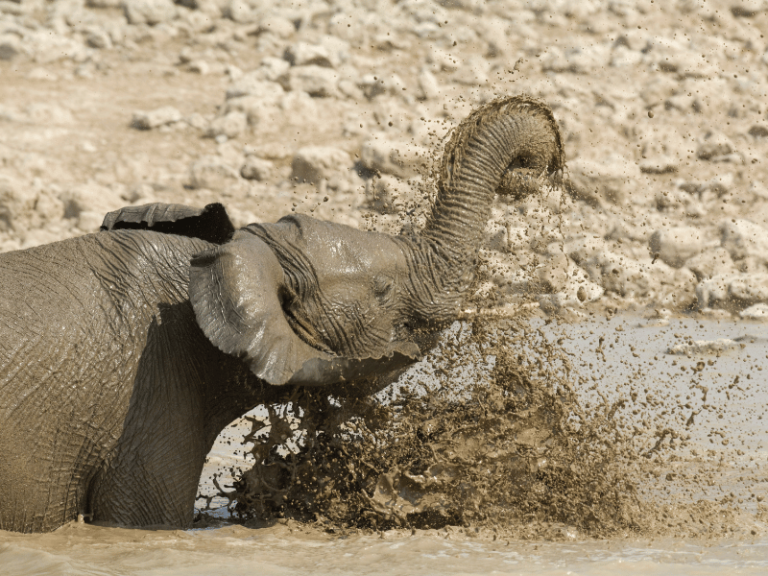On hot days, people usually wash themselves in the evening to get rid of some dirt, which makes them feel more comfortable. However, animals like elephants and rhinos are different. Although they mostly live in tropical regions and often soak in water to cool off, they frequently spray a layer of mud or coat themselves with thick mud after coming out of the water, ending up quite dirty.
It may seem amusing to coat a cleaned body with mud or mud slurry. But for elephants and rhinos, this is essential. Despite their thick skin, which is said to be impervious to ordinary handgun bullets, there are many delicate areas between the folds of their skin, thin enough to be pierced by a sewing needle. The mouthparts of tropical blood-sucking insects (such as mosquitoes, biting flies, and horseflies) are very strong. In some regions, the insect population is so dense that certain animals cannot inhabit those areas. These blood-sucking insects love to burrow into the skin folds of large warm-blooded animals like elephants and rhinos, biting them painfully and causing itching.
Furthermore, scientific research has shown that after a warm-blooded animal takes a water bath, the blood vessels in its skin dilate more than usual and emit a scent that attracts blood-sucking insects. Therefore, elephants and rhinos face even more blood-sucking insects after coming out of the water. To prevent these bites, they apply mud and sand to their bodies, filling the skin folds and forming a protective layer. The wet skin right after emerging from water makes it easy for the mud and sand to stick.

